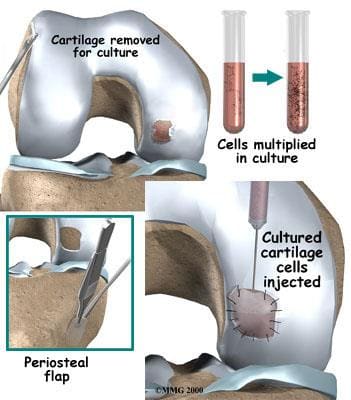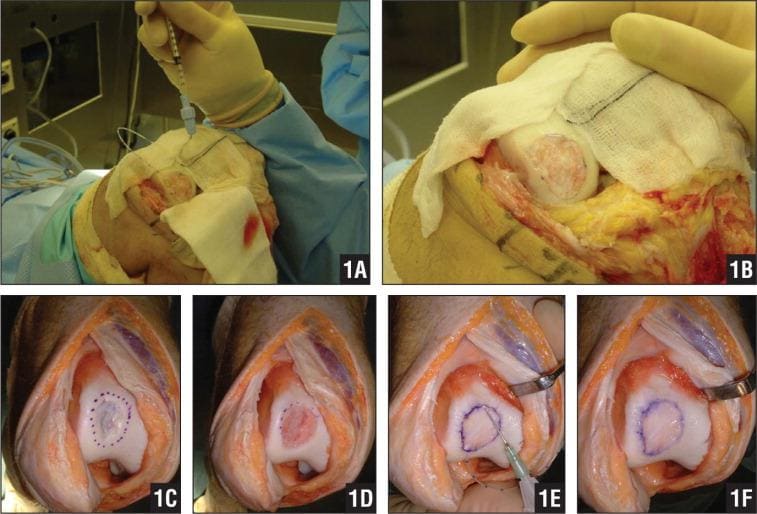What is Autologous Chondrocyte Implantation?
Autologous Chondrocyte Implantation (ACI) is a procedure suitable for larger cartilage defects in the knee (larger than 2 by 3 cm). It is a procedure that has been performed for nearly 20 years and involves taking a biopsy of patient cartilage, growing and culturing your own cartilage cells in a lab, and then re-implanting new cartilage to the defect around 6 weeks later.
NICE (National Institute of Clinical Excellence) approved ACI as a procedure that can be performed on the NHS in October 2017.

Am I suitable?
ACI is suitable in those patients with large cartilage defects (more than 2 by 3 cm) and with no arthritis in the knee. Those patients with smaller defects would be suitable for micro-fracture or other regenerative procedures (e.g. concentrated cells with a scaffold).
What does the procedure involve?
After being deemed suitable for the procedure (this is done following an MRI scan and consultation), an arthroscopy is performed as a day-case procedure and a small piece of cartilage is removed from a non-weight bearing part of the knee. This is sent to a cartilage laboratory and cells are cultured (grown) over a 4-6 week period. Once a large number of cells have been grown, these are returned to the hospital on the planned day of surgery.
The second operation is via an open approach and the cells are implanted onto the cartilage defect. Cells can be implanted onto a scaffold to cover the defect, or a membrane is stitched around the defect and the cells are injected into the membrane.
The second procedure involves an overnight stay in hospital and you are placed in a brace for 6 weeks (partially weight bearing).

What is the recovery?
Full recovery is 3 – 6 months and intensive physiotherapy is required to restore the normal movement and muscle function.
What are the outcomes?
ACI has an overall 5 year success rate of around 60-70%. It has the best outcomes for all regenerative procedures in the knee.